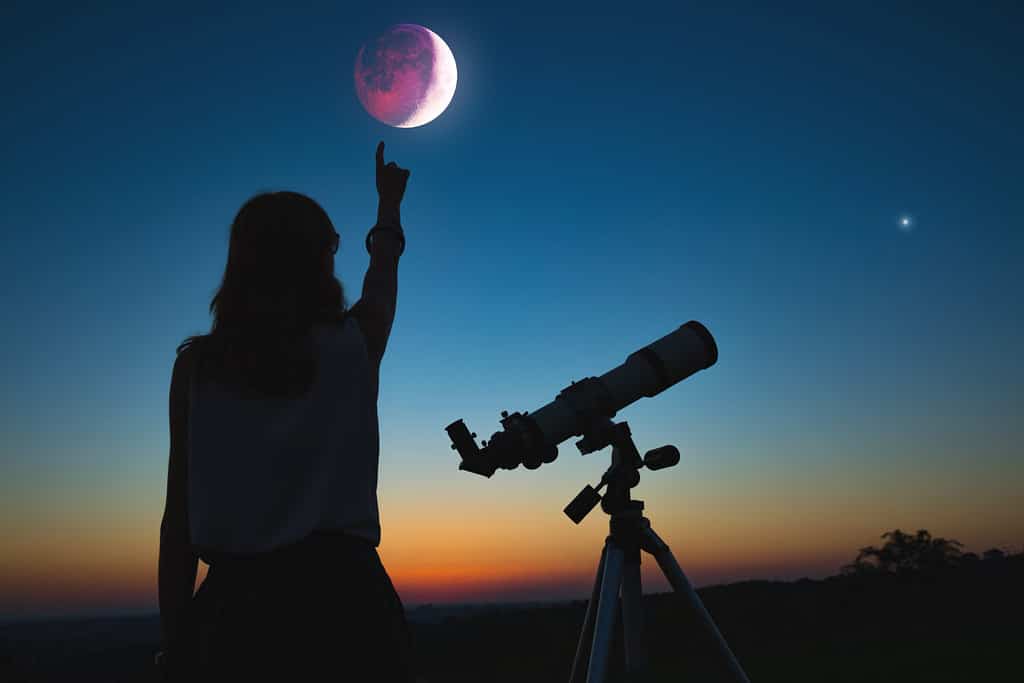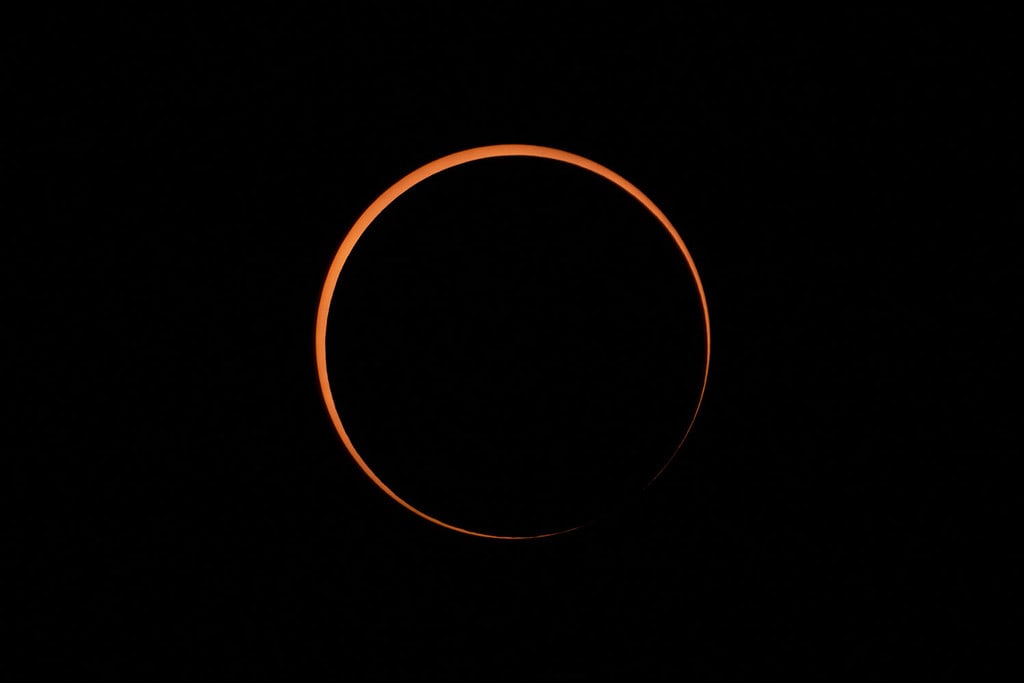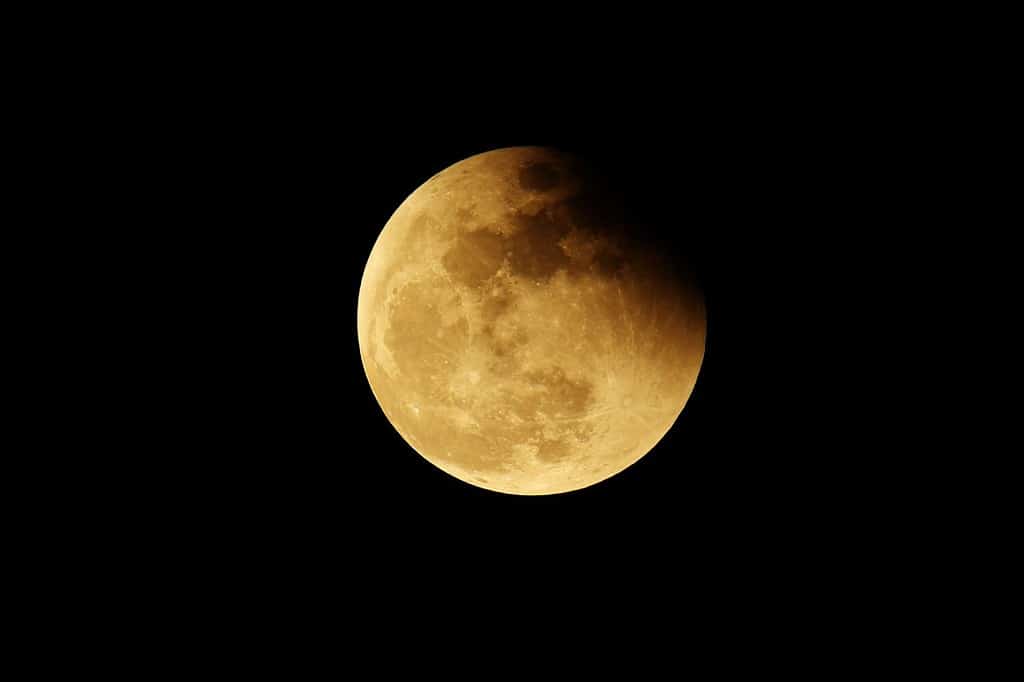
Eclipses are powerful events in astrology.
©AstroStar/Shutterstock.com
Throughout history, eclipses have had a strong impact on people. Before humans understood the astronomical dynamics between the Sun, the Moon, and the Earth, these events were terrifying for the average person. So, communities created magical explanations for eclipses. For example, the Inca people believed that a solar eclipse signified the anger of the sun god, Inti. In ancient China, locals believed that a lunar eclipse was a sign from above about the future of an emperor’s rule. The Ancient Greeks believed that eclipses were a sign of displeasure with the king, from Hades, the god of the underworld.
Before humans could predict when an eclipse would happen, these events were not necessarily a part of astrological predictions. Even without modern technology, many cultures developed the ability to understand and predict these celestial events earlier than you might think. Chinese astrologers figured out the true cause of eclipses around 20 BCE. Around 8 BCE they could predict solar eclipses, and around 200 CE they could predict lunar eclipses.
Once humans could predict eclipses, they developed more significant predictive and psychological meanings in astrology. They became much more than events that seemed to happen at random.
What Are Eclipses?

During an annular solar eclipse, you can see a small ring of light around the moon.
©Hit1912/Shutterstock.com
From a scientific perspective, eclipses are the play between the Sun, the Moon, and the Earth.
What Is a Lunar Eclipse?
A lunar eclipse occurs when the Moon passes into the Earth’s shadow. This happens only when the Sun, Moon, and Earth are perfectly aligned. There are three types of lunar eclipses:
- During a total lunar eclipse, the Moon passes through the darkest section of the Earth’s shadow, the umbra. During this type of eclipse, the Moon takes on a reddish hue, for the same reasons that a sunset is red. Because of this, another name for a total lunar eclipse is a “blood moon.”
- During a partial lunar eclipse, only part of the Moon passes through the Earth’s shadow, so only part of the Moon is blocked out.
- During a penumbral lunar eclipse, the Moon passes through the outer edges of the Earth’s shadow. This type of lunar eclipse is so subtle, you might not even notice it. It only results in a slight dimming of the Moon.
What Is a Solar Eclipse?
A solar eclipse happens when the moon passes between the Sun and the Earth and blocks out the Sun’s light. There are several different types of solar eclipses. They are categorized by how much of the Sun’s light is blocked:
- During a total solar eclipse, the Sun is completely covered by the Moon.
- During an annular solar eclipse, the Sun and moon fully align, like in a total solar eclipse. However, the Moon is at its furthest point from the Earth, so it doesn’t fully cover the Sun, creating a crown-like effect around the Moon.
- During a partial solar eclipse, the Sun and Moon are not at the same plane, so the Moon only covers part of the Sun. Solar eclipses are so rare in general because the Sun and Moon are only at the same plane once per year.
- During a hybrid solar eclipse, the eclipse switches between a total and annular solar eclipse, due to the way the Earth is curved.
Take precautions when it comes to solar eclipses. It’s dangerous to look directly at them. Purchase solar viewing glasses to avoid damaging your eyes.
How Do Scientists Predict Eclipses?
Early Chaldean astronomers recognized that some lunar and solar eclipses occurred in a pattern, which is now called The Saros Series. For eclipses that are part of this series:
- A solar eclipse always takes place nine years and 5.5 days after a lunar eclipse.
- A lunar eclipse always takes place nine years and 5.5 days after a solar eclipse.
- An almost identical eclipse will take place 18 years, 11 days, and eight hours after any eclipse in The Saros Series.
In our modern era, eclipses are much easier to calculate using what we know about the size, shape, and orbital motions of the Sun, Moon, and Earth. Scientists can now use advanced mathematics to predict eclipses accurately for about 1,000 years into the future. As we look further and further into the future, it becomes harder to predict eclipses due to small changes in the rotation of the Earth and the Moon’s “wobble.”
How Often Do Eclipses Occur?
Each year there are typically between four and seven eclipses. There are usually at least two lunar eclipses and two solar eclipses per year. However, it is possible to have one or three lunar eclipses, and up to five solar eclipses each year. The most recent year to have seven eclipses was 1982, and the next one will be 2038.
Because eclipses only occur during the two times per year that the Sun and Moon are in the same plane, a solar and lunar eclipse always occur within a few weeks of each other, creating an “eclipse season” of at least two eclipses during that month’s new moon and full moon.
What Do Eclipses Mean in Astrology?

During a lunar eclipse, the moon goes into the Earth’s shadow.
©Sumruay Rattanataipob/Shutterstock.com
In astrology, eclipses generally shake things up. However, solar and lunar eclipses shake things up in different ways. First, they always occur in directly opposite signs. If a solar eclipse happens in Libra, the lunar eclipse will be in Aries. Those with any placements in the sign of the eclipse may feel it more strongly, especially if those placements are at a close degree in the natal astrology chart. You will likely feel it even more strongly if it is close to your natal Sun, Moon, or Rising sign.
The Sun is the planetary ruler of the sign Leo, and the Moon is the planetary ruler of the sign Cancer. So, people with strong Leo placements, especially Leo suns, may feel solar eclipses particularly strongly, and Cancers may feel lunar eclipses strongly.
Beginnings and Endings
Some astrologers believe that solar eclipses are all about beginnings and lunar eclipses are all about endings. From a philosophical perspective, it makes sense. The sun starts the day, and the moon ends it. However, sometimes an end and a beginning are hard to distinguish. For example, getting fired from a job could be seen as the end of your employment, or the beginning of a new opportunity. Either way, eclipses tend to come with big change and big emotions.
Because a lunar eclipse can only happen on a full Moon, and a solar eclipse can only happen on a new moon, astrologers say that each of these types of eclipses is a supercharged version of a full or new moon. The full moon is often about release and endings, and the new Moon is often about beginnings and calling in the things you want. During normal full and new moons, people do rituals around those topics. However, it’s recommended to avoid doing full Moon and new Moon rituals during eclipses — the energy is simply too turbulent.
The Moon’s Nodes and Eclipses
Lunar and solar eclipses happen near the north and south nodes of the moon, which are important astrological points. Even if it is not happening near your own north or south node sign, it can still have an effect. In your natal chart, the north node is the lesson you must learn in this lifetime and what you are moving towards. The south node is your baggage from past lifetimes, or, if you don’t believe in reincarnation, you can consider it well-worn habits that you need to leave behind in order to thrive. When an eclipse happens on your natal North or South node, the eclipse may highlight your own personal lessons on those themes.
The Energy of an Eclipse
The energy around an eclipse can feel like a major crisis, depending on how it is hitting your natal placements. Emotions can run high, especially during a lunar eclipse. It may unleash feelings you have been holding back for a long time or bring up powerful issues in an important area of life like a relationship or your career. During an eclipse, you may feel extreme emotions. You might be depressed, elated, or enraged, depending on what is going on in your life.
Things may change rapidly around an eclipse. You might go through a breakup, get a new job, get fired, move house, or find out other life-changing news around the time of an eclipse. It might not be on the day of the event. It may be a week before or after.
Dealing With the Power of an Eclipse
Even if these emotions are stronger than in your usual day-to-day life, they still serve to show you something. It’s important to pay attention to them and pay attention to what is happening around you. If things change rapidly around you, go with the flow. However, it’s also important not to make big changes on the day of an eclipse. If you have extreme emotions during an eclipse, think about things for a few days or even a week before taking any action to see if you still feel the same way.
It’s important not to ascribe “good or bad” to the events of an eclipse. Even if it feels hard in the moment, change is just a part of life. Even something that feels hard can lead to positive new opportunities in the future.
The photo featured at the top of this post is © kdshutterman/Shutterstock.com
Thank you for reading! Have some feedback for us? Contact the AZ Animals editorial team.






